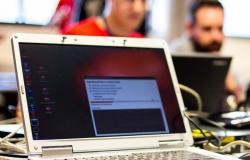A specially designed video game can help high school students become more efficient when it comes to distinguishing between reliable news and fake information, reveals a new study carried out by researchers at Uppsala University.
“This is an important step in the process of providing young people with the tools they need to navigate a world filled with misinformation. We all need to get better at identifying manipulative strategies, since it is virtually impossible to distinguish between deepfakesfor example, and other examples of disinformation produced using AI, with the naked eye,” says Thomas Nygren, professor of education at this university.
Along with three other researchers, Professor Nygren conducted a study involving 516 young Swedish people attending classes in four different secondary schools. This research, published in the Journal of Research on Technology in Educationlooked at the effect of the game Bad News in a school environment – this is the first scientific evaluation of this title in a normal classroom, it is claimed.
This game was created for teaching and research purposes, and participants take on the role of spreaders of fake news. In the study, students played solo, in groups of two, or as a whole class with a common score – and all three methods had positive effects. This surprised the researchers, they write, when they believed that students would learn more by working together on the computer.
“Students improved their ability to identify manipulation techniques in social media posts, and to distinguish between reliable and fake news,” commented Professor Nygren.
The study also showed that students who already had a positive attitude toward reliable news sources were better at spotting misinformation, and this attitude became significantly more positive after playing the game.
In addition, the researchers say, many students improved their ability to assess the credibility of information sources and became able to explain how they could identify manipulation techniques, all in a more sophisticated way.
Still according to the authors of the work, competitive elements present in the game made it more interesting and improved the advantages of fake news detection and manipulation techniques. The researchers therefore conclude that professors and teachers could benefit from these games, as part of their lessons, to promote media literacy and information management among young people.






